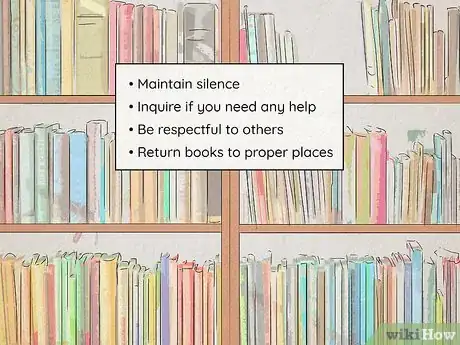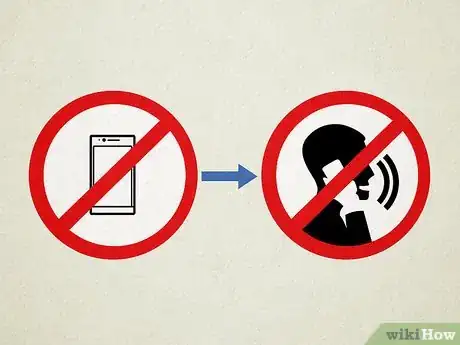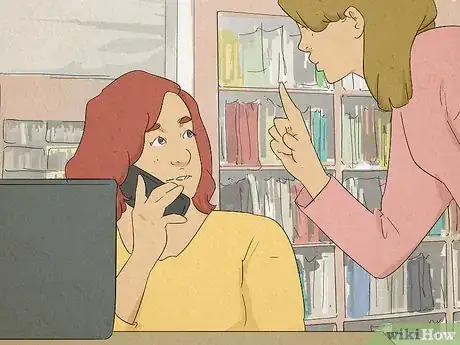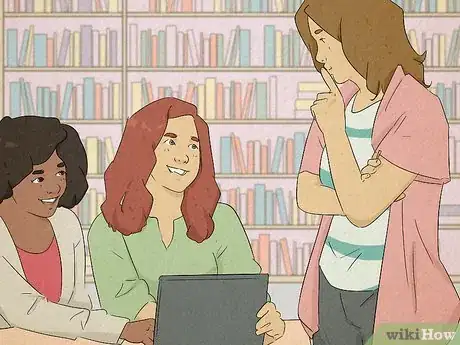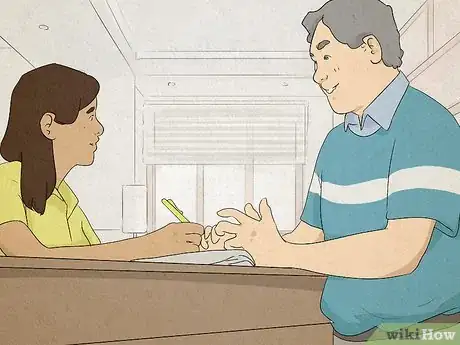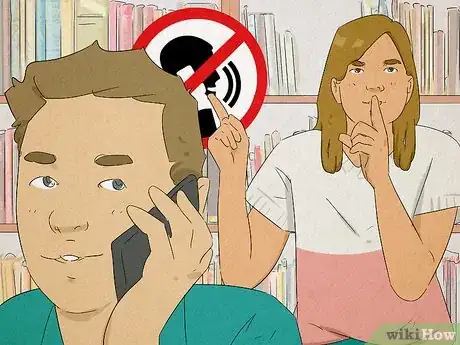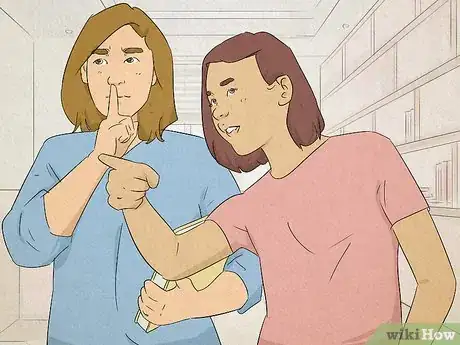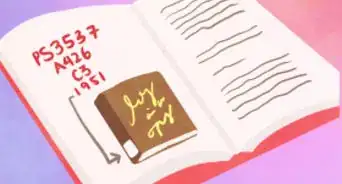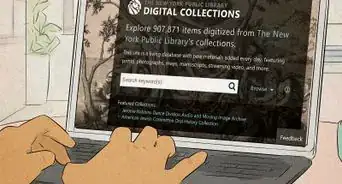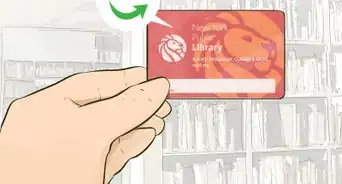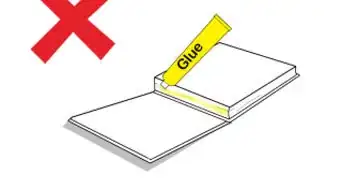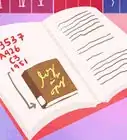This article was co-authored by wikiHow staff writer, Christopher M. Osborne, PhD. Christopher Osborne has been a wikiHow Content Creator since 2015. He is also a historian who holds a PhD from The University of Notre Dame and has taught at universities in and around Pittsburgh, PA. His scholarly publications and presentations focus on his research interests in early American history, but Chris also enjoys the challenges and rewards of writing wikiHow articles on a wide range of subjects.
This article has been viewed 8,625 times.
Learn more...
While you’d like to think everyone knows how to act in a library, any librarian will tell you that isn’t the case. Maintaining discipline is part of the job when you work at a library, and we’ve listed several useful suggestions for handling rule breakers in a helpful, equitable, and effective manner. And don’t worry—you don’t have to act like a drill sergeant to get the job done!
Steps
Community Q&A
-
QuestionHow should you behave in a library?
 Drew Hawkins1Community AnswerMost libraries will have rules or a code of conduct posted somewhere easy to find if you're unsure. However, many libraries have similar rules including no loud talking, no eating or drinking, and no music. Some libraries may have policies about what you can use the computers for or if you can take a phone call, but in general, try to keep the space as calm and quiet as you can so others can read and work in peace. If you need to make a call or talk to someone, just head outside or to a common space where it's okay.
Drew Hawkins1Community AnswerMost libraries will have rules or a code of conduct posted somewhere easy to find if you're unsure. However, many libraries have similar rules including no loud talking, no eating or drinking, and no music. Some libraries may have policies about what you can use the computers for or if you can take a phone call, but in general, try to keep the space as calm and quiet as you can so others can read and work in peace. If you need to make a call or talk to someone, just head outside or to a common space where it's okay. -
QuestionHow do you keep a library quiet?
 Drew Hawkins1Community AnswerOne of the best ways to keep a library from becoming a noisy or rowdy space is to catch and stop problems before they get a chance to get out of hand. Try to act proactively. If you see a group of kids starting to play around, try talking to them in a friendly manner and simply remind them that they need to try to be quiet while inside the library but they can talk and play all they want outside. If you're a librarian, you could hold an impromptu story time for a group of kids if it seems like they'll be a disruption. For adults, you can simply remind them of the library's rules. Save an aggressive "SHHH" as a last resort!
Drew Hawkins1Community AnswerOne of the best ways to keep a library from becoming a noisy or rowdy space is to catch and stop problems before they get a chance to get out of hand. Try to act proactively. If you see a group of kids starting to play around, try talking to them in a friendly manner and simply remind them that they need to try to be quiet while inside the library but they can talk and play all they want outside. If you're a librarian, you could hold an impromptu story time for a group of kids if it seems like they'll be a disruption. For adults, you can simply remind them of the library's rules. Save an aggressive "SHHH" as a last resort! -
QuestionHow do you manage a library?
 Drew Hawkins1Community AnswerFor starters, make sure the rules are posted somewhere super easy to see so everyone is aware of what they are. If it’s a school library, go over the rules the first time you meet with each class or group of students. As a librarian, you've got to try to be authoritative without being bossy or mean. You don't have to walk around with your arms crossed and a scowl. Instead, try to gently remind people of the rules and try to catch problems before they start. For instance, if a few patrons are starting to have a loud conversation, you can ask them to go outside if they need to talk. If you have an aggressive or potentially violent patron, immediately contact security or the police, depending on what your library's policy. Don't take any chances when it comes to your own or other patron's safety.
Drew Hawkins1Community AnswerFor starters, make sure the rules are posted somewhere super easy to see so everyone is aware of what they are. If it’s a school library, go over the rules the first time you meet with each class or group of students. As a librarian, you've got to try to be authoritative without being bossy or mean. You don't have to walk around with your arms crossed and a scowl. Instead, try to gently remind people of the rules and try to catch problems before they start. For instance, if a few patrons are starting to have a loud conversation, you can ask them to go outside if they need to talk. If you have an aggressive or potentially violent patron, immediately contact security or the police, depending on what your library's policy. Don't take any chances when it comes to your own or other patron's safety.
References
- ↑ https://www.libfocus.com/2015/10/the-good-librarian.html
- ↑ https://elementarylibrarian.com/tips-for-new-librarians/
- ↑ https://www.publishersweekly.com/pw/by-topic/industry-news/libraries/article/57090-so-you-think-you-want-to-be-a-librarian.html
- ↑ https://www.jstor.org/stable/30183048?seq=1
- ↑ https://www.libfocus.com/2015/10/the-good-librarian.html
- ↑ https://elementarylibrarian.com/tips-for-new-librarians/
- ↑ https://www.libfocus.com/2015/10/the-good-librarian.html
- ↑ https://library.shoreline.edu/rules
- ↑ https://library.shoreline.edu/rules

